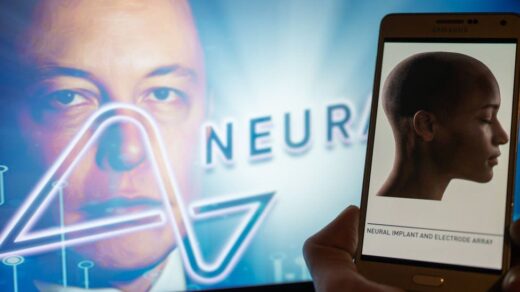Elon Musk’s Neuralink division has successfully implanted its first wireless brain chip into a human, according to the world’s richest man. This technology has the potential to save the human race in the long term, Musk claims. While the concept of sticking electrodes into brain tissue is not new, implantable technology has taken time to mature. Neuralink is one of several companies and university departments working to refine and commercialize this technology, with a focus on paralysis and the treatment of neurological conditions. The brain-computer interface (BCI) technology, which can detect electrical signals in the brain, has received significant research funding. Neuralink’s device, about the size of a coin, is inserted in the skull and can read neuron activity and transmit wireless signals. The company has conducted trials in pigs and monkeys, and it received approval for human trials in 2023. However, Neuralink faces competition from other companies such as Synchron, which has already implanted its device into 10 patients. The long-term goal of Neuralink is to achieve “human/AI symbiosis” by developing a system that can accurately interpret brain signals, allowing humans to communicate with computers and electronic devices more effectively. While some experts are skeptical about the consumer applications of this technology, others believe it could be used to stimulate the brain to address various medical conditions. However, there are practical barriers to overcome before Neuralink becomes a mainstream consumer product, including the need for personalized chips and the potential need for regular updates. Experts agree that this cutting-edge technology is still decades away from being widely available. Musk has also suggested that the ultimate goal of Neuralink is to protect humanity from the risks of artificial intelligence by combining human and computer brains.









